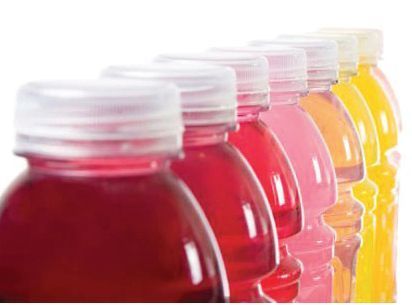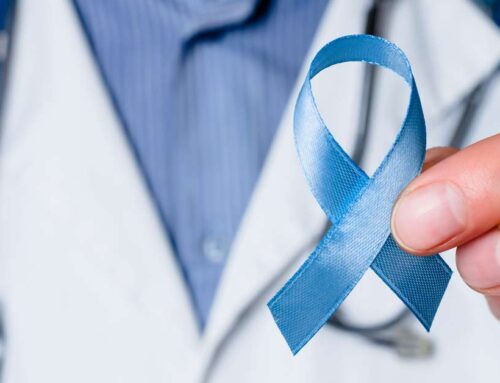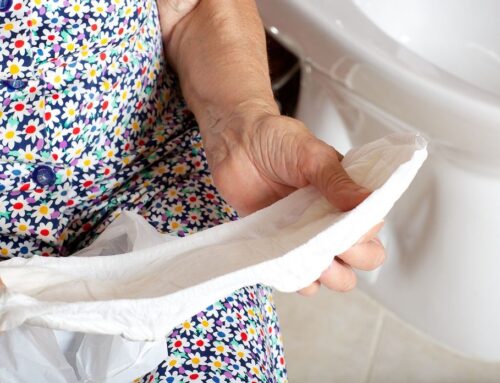Kidney stone season is nearly upon us, and you can reduce the likelihood of forming stones by avoiding these common mistakes.
1. Not Staying Hydrated
 Dehydration is the most common cause of kidney stones and is easily preventable. In the summertime, it’s recommended adults get 2-3 liters of water a day – even if you’re not prone to developing stones. “A lot of my patients aren’t used to drinking that much fluid in the day, and it can take a little work to get in the habit,” says Dr. Daniel Yelfimov. “I recommend buying a quality, 20-ounce beverage container and carrying it with them everywhere they go, drinking from it throughout the day, and gradually work up to filling it three times a day.”
Dehydration is the most common cause of kidney stones and is easily preventable. In the summertime, it’s recommended adults get 2-3 liters of water a day – even if you’re not prone to developing stones. “A lot of my patients aren’t used to drinking that much fluid in the day, and it can take a little work to get in the habit,” says Dr. Daniel Yelfimov. “I recommend buying a quality, 20-ounce beverage container and carrying it with them everywhere they go, drinking from it throughout the day, and gradually work up to filling it three times a day.”
2. Hydrating the Wrong Way
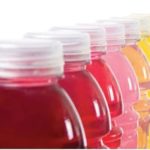 Because hydration is so important, how you stay hydrated is equally important. When the weather heats up, people often reach for sports drinks or tea to replenish or refresh themselves, but those liquids can work against you when it comes to forming kidney stones. “Most sports drinks have a lot of sodium added, so they’re basically kidney stones in a cup,” says Dr. Kenneth Stallman.
Because hydration is so important, how you stay hydrated is equally important. When the weather heats up, people often reach for sports drinks or tea to replenish or refresh themselves, but those liquids can work against you when it comes to forming kidney stones. “Most sports drinks have a lot of sodium added, so they’re basically kidney stones in a cup,” says Dr. Kenneth Stallman.
Instead, opt for plain water, green tea, lemonade, or limeade. “Because citrate is a natural inhibitor of kidney stones and many people need more citrate in their diet, lemonade is a good choice – the real kind made with fresh lemons – or powered mixes that list citric acid as a primary ingredient,” adds Dr. William Harmon.
3. Eating Out / High Sodium Intake
Restaurants use an inordinate amount of salt in their foods, and high levels of sodium in your 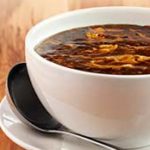 body cause the kidneys to work in a way that makes the formation of stones much easier. “A lot of times people think they’re being healthy at a restaurant by getting something like a chicken breast, but it’s still loaded with salt,” says Dr. Stallman. “It’s always going to be better for you to prepare your own food at home so you know exactly what’s in it – just don’t forget to limit the salt.”
body cause the kidneys to work in a way that makes the formation of stones much easier. “A lot of times people think they’re being healthy at a restaurant by getting something like a chicken breast, but it’s still loaded with salt,” says Dr. Stallman. “It’s always going to be better for you to prepare your own food at home so you know exactly what’s in it – just don’t forget to limit the salt.”
Example: PF Chang’s Hot and Sour Soup Bowl contains almost 10,000 mg of sodium. To put that in perspective, healthy individuals are recommended to consume no more than 2,300 mg for an entire day, and even less if they’re prone to forming kidney stones.
4. Eating High Oxalate Foods
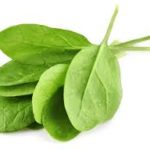
“Lots of people think watching their calcium intake is important to reducing stone, but what they should be focused on is lowering their oxalate intake,” says Dr. Yelfimov. Oxalate is a component found in many foods and contributes to the formation of the most common type of stones.
To make following a low-oxalate diet easier, we’ve compiled a list of foods that you should avoid, limit, or freely enjoy. Free resource download: Low Oxalate Diet.
5. Cutting Calcium
“By cutting calcium out of your diet, you’re more than likely increasing your risk of kidney stones,” says Dr. Yelfimov. “Calcium binds with oxalate and is flushed from the body, and without calcium – oxalate can build up and cause stones.” Yelfimov suggests a daily multivitamin on top of a healthy, well-rounded diet to get the calcium your body needs.
6. Taking Supplements with Unknown Ingredients
If you’re prone to kidney stones, you shouldn’t overlook the ingredients in supplements you may be taking. For instance, taking a spinach extract wouldn’t be advised since spinach is a high oxalate food. Check with your urologist if you’re unsure about your supplements ingredients and their effect on kidney
7. Drinking Alkaline Water
Proponents of alkaline water say that it can prevent diseases, boost your metabolism, slow the aging process, etc. – but none of these claims have been validated. “I don’t think anyone should be drinking alkaline water without speaking with their doctor first,” says Dr. Timothy Hlavinka. “In rare cases, we’ve seen alkaline water consumption coincide with the development of serious kidney stones.” Hlavinka recommends plain water be consumed instead.

